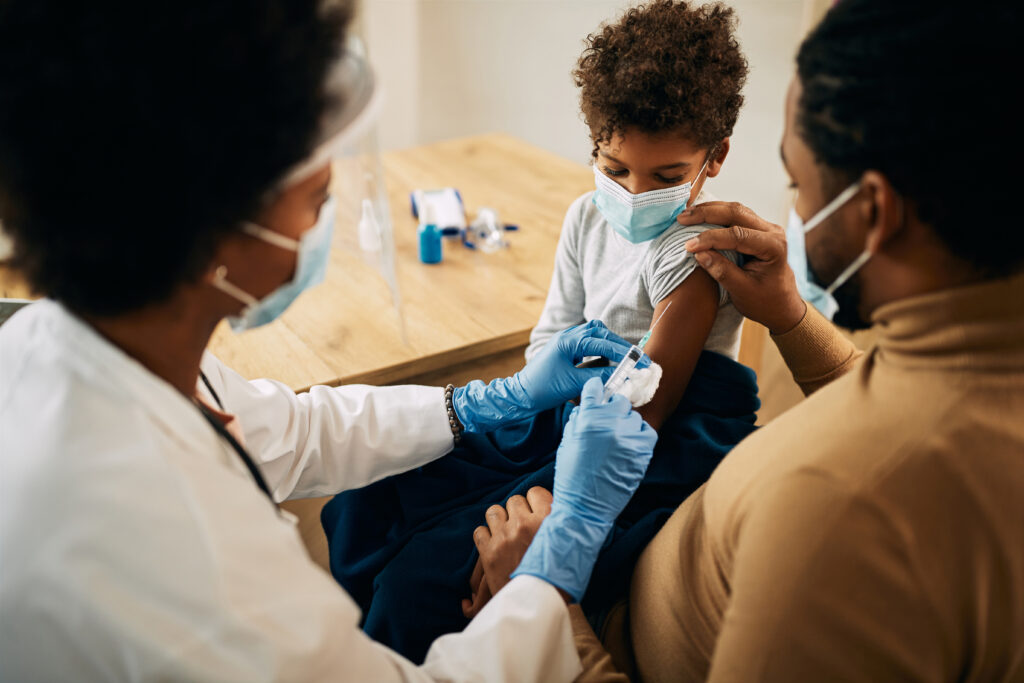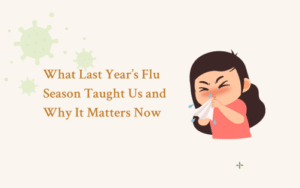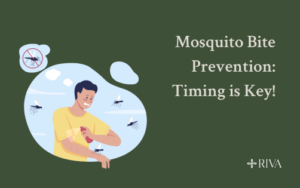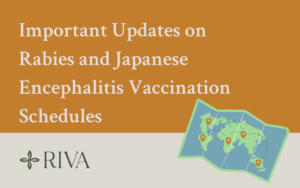To say that the last few years have tested global resources and infrastructures would be something of an understatement. While it goes without saying that the Coronavirus pandemic has created some worldwide challenges, the unexpected backlash that has come in the form of vaccine hesitancy is fast becoming one of the more troubling footnotes, to an already complex issue.
It’s only human nature to approach things we don’t fully understand with apprehension. But with growing caution and fear comes a wave of misinformation and questions from vaccine sceptics. And while a little uncertainty is healthy, there comes a time when that uncertainty can grow into poorly constructed narratives and dangerous distortions of the facts.
While a decrease in hesitancy over the last year has given us some positive steps to gain momentum, it’s essential that people’s concerns and questions are met with confidence, respect and clear, concise answers.
In the spirit of helping us all to move forward, while understanding the trepidation that some people may have, here are the 10 most common objections of vaccination sceptics.
1. There Is No Proof That Vaccinations Are Effective
This depends on each individual person’s definition of effective. Vaccines have been proven to reduce the risk of infection and provide the body with more consistent levels of protective antibodies.
Even the most stringent vaccination advocates wouldn’t say things like ‘guaranteed’ when it comes to discussing the effectiveness of vaccines. But, the numbers speak for themselves. Public Health England reported that two doses of the COVID vaccine proved to be between 65-95% effective at preventing symptomatic diseases associated with the infection.
2. Vaccinations Have to Be Repeated and Are Therefore Ineffective
This is a common objection amid vaccination sceptics. Generally speaking, most vaccines have an extremely high rate of effectiveness (measles, mumps and rubella to name but a few), particularly after a second dose.
It’s not difficult to see why vaccine hesitancy rears its head during unpredictable times. But with diseases like polio and chickenpox almost completely extinct, there’s consistency and results to back up a pro-vaccination stance.
So, why are some of us more responsive to a vaccine the first time around than others? Because, quite simply, no two people are the same. Every vaccine is made for the purpose of creating an immune response to protect people from further exposure. In some cases, the response is slower or a little weaker than others.
3. You Can Still Catch an Infection, Even If You’ve Been Vaccinated Against It
This is one of the primary reasons for vaccine hesitancy – if people can still potentially catch COVID after being fully vaccinated, then why bother getting one at all?
However, just because a vaccine doesn’t offer 100% results, that doesn’t mean they aren’t still extremely effective in protecting you – and those around you. A clinical trial that reports an 80-90% success rate is an impressive feat, and a testament to the effectiveness of a vaccine. No vaccine offers a perfect success rate, but those unsuccessful cases are extremely rare.
In other words, the vaccine is working. But there are several levels of vaccine success.
- Firstly, disease and long-term symptoms prevention.
- Secondly, reducing the severity of those symptoms in the event of infection, for those who are fully vaccinated.
- Thirdly, preventing the mass spreading of the disease from one person to another.
Inevitably, there are people in the world who lack strong immune systems, or age groups who don’t have the strength to combat infections. But, the more vaccinated people we have, the less pace and momentum the disease can gather.
4. The Existence of These Supposed Disease-Causing Pathogens Has Yet To Be Proven
In microbiology, a vaccination doesn’t exist without a pathogen. In fact, vaccinations themselves are extracted from the components of inactive pathogens. In other words, without the existence of a pathogen, it wouldn’t be possible to use what we learn about it to develop vaccines and bolster immunity, in the event of these pathogens coming into contact with humans.
While vaccine sceptics have questioned the very existence of pathogens, advancements mean we are now able to identify their genetic codes – offering greater insight into their existence.
5. Infections Are Important to a Child’s Development and Help Their Immunities More than Vaccines Do
Many parents state that one of their biggest reasons for vaccine hesitancy is that their children should naturally overcome infectious diseases. Some would even go so far as to say that vaccinations hinder their natural development.
None of these claims has ever been proven or observed in any scientific studies to date. Vaccinations only target a small number of dangerous pathogens, whereas the immune system combats hundreds of other pathogens every single day.
In fact, vaccinations are designed to stimulate the immune system, so the idea of vaccinated children being weaker or developing poorer immunities is highly improbable.

6. Parents Had These Infectious Diseases as Children and Got over Them Perfectly Fine
This is true. In most cases, many infections that we encounter can be overcome without consequences. But any disease has the capacity to cause serious harm. So-called childhood diseases like Whooping Cough, Polio and Diptheria killed thousands of people before vaccinations existed.
The term childhood disease itself can be misleading, as it implies there aren’t any long-term complications. Roughly one in a thousand children who have had measles will develop inflammation in the brain (Measles Encephalitis), which can be fatal. In the case of younger males, mumps can cause inflammation of the testicles and lead to fertility problems. And pregnant women who are not immune to rubella can lead to deformities in their unborn children.
Yet, two doses of a rubella vaccine gives almost complete protection against this. Are there guarantees? No, but the use of a seat belt doesn’t guarantee you won’t get into a car accident. But, we still use them. Why? Because it significantly decreases our chances of being hurt in the event of an accident.
7. Babies Get Antibodies from Their Mothers, Which Is Sufficient
Vaccination hesitancy in cases of pregnancy are perfectly understandable. And it’s true that pregnant women transfer antibodies to their unborn children that protect against several infections. But it’s important to remember that this passive immunity only supports the child during the first few months of life. During that time, the child is developing its own immune system.
Of course, a mother just wants what’s best for her child. However, a mother can only transfer antibodies against diseases that she herself has been immunised against. Even then it needs to be a high enough concentration of antibodies to actually be effective.
If a mother is vaccinated during pregnancy, she can generate the maternal passive immunity needed to protect the baby after birth. They can then build their own immunity until receiving vaccinations after two months.
8. Women Who’ve Had an Infection Pass on More Antibodies to Their Children than Women Who’ve Been Immunised
Yes, this is true. At least in the cases of measles, mumps and rubella. But that doesn’t necessarily mean that it’s better to not be vaccinated at all. Diseases like these are volatile and can take a hazardous turn for children or adults, causing extreme complications.
And as mentioned above, this is only true in certain cases. A mother absolutely does not transfer antibodies against all of the world’s infectious diseases to her child. And when it comes to vaccination hesitancy, it’s imperative to remember that vaccines have helped to prevent millions of deaths since their introduction to the world.
9. Early Vaccinations Pose Avoidable Risks to Children
In the majority of vaccine FAQs, this statement will rear its head. The fact remains that some infections will affect infants more than older children – and this is why babies are vaccinated against a range of diseases when they reach two months of age.
For example, if a child contracts whooping cough before turning six months old, the chances of them developing complications, like pneumonia, are increased. Children above this age are far less likely to experience this.
This general assumption that infants are less tolerant of vaccines to combat this is unfounded. Yes, premature babies should be given special checks to their hearts and lungs after vaccinations – to recognise complications quickly, but premature babies are also more susceptible to infections. Therefore, the risk-benefit ratio still swings in favour of giving them a vaccination.
10. Repeated Vaccinations Overburden a Small Child’s Immune System
There’s no evidence that suggests multivalent vaccines overburden the immune system. But it is true that some combined vaccines will be less effective on the immune system than if they’re administered separately. The number of jabs needed overall can be reduced by using multivalent vaccines.
These days, up to six vaccines can be combined into one single jab:
- Tetanus
- Diptheria
- Whooping cough
- Polio
- Hepatitis B
- Haemophilus
And while it’s true that children are vaccinated against far more infections than they used to be, the levels of antigens transferred with each vaccine has dropped substantially. The earliest whooping cough vaccines contained over 3,000 different antigens. And now? The combined antigens of all vaccinations are only 150.
So, how does that compare against a child’s immune system? Well, their immune systems deal with a much larger number of antigens every day, regardless of vaccines.
With these 10 common objections about vaccines, we aim to help every person do what’s best for themselves and their loved ones. We have provided you with as much information as possible, so that decisions can be made with all of the right intentions.
We also hope that with these answers, healthcare professionals are able to speak with more confidence, and that individuals feel that their concerns and fears have been heard, and understood.




